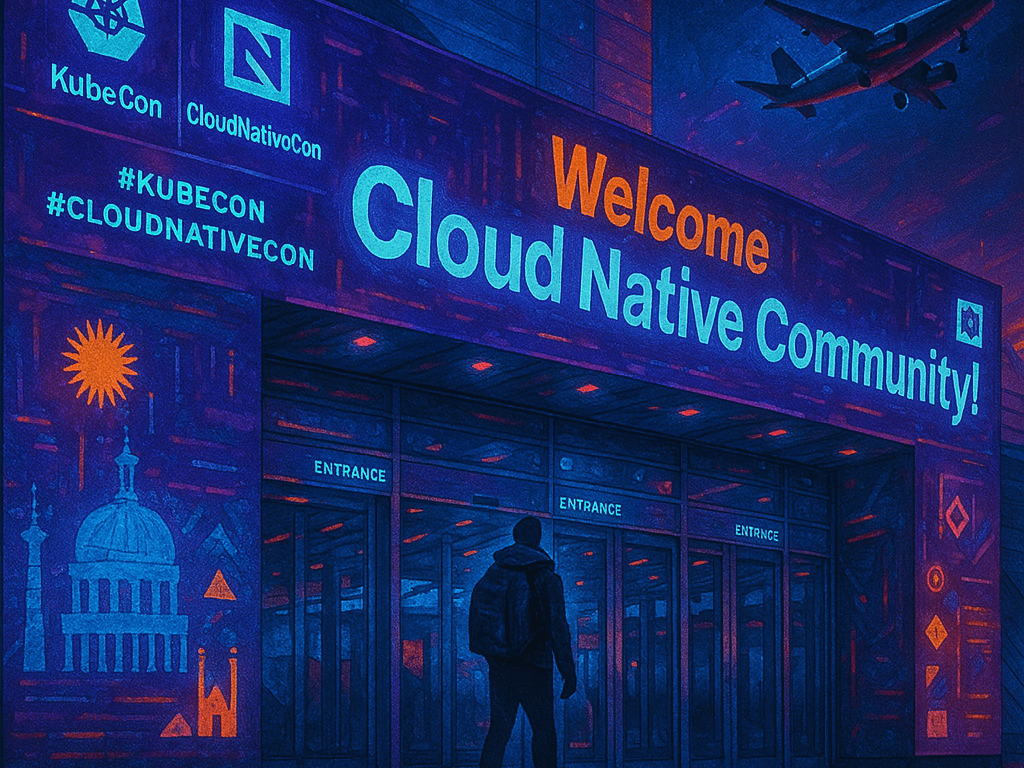KubeCon Europe 2025 Recap: Inspiring Lessons on AI, Security & Platform Engineering

As somebody who concentrates on application development, the worlds of DevOps, infrastructure, and even Kubernetes have always felt slightly out of reach. But come 2025, that no longer is an option. The world of modern software development is intricately woven with cloud-native technologies, and for someone aspiring to move beyond merely coding, I realized I had to embrace the discomfort.
That’s the primary reason I attended KubeCon + CloudNativeCon Europe 2025 in London — and I’m so glad I did! For those who are as much into development as I am, or are already in platform or DevOps, check out these emerging tools and trends alongside my take on the key insights from the cloud-native evolution of software.
🔥 AI on Kubernetes: Scaling Machine Learning in the Cloud
At KubeCon Europe 2025, what caught my attention most was the advancement of the AI/ML workloads on Kubernetes. It looks like the sessions and the demos made it clear that Kubernetes is the new industry standard on configuring, propelling, and maintaining AI infrastructure.
My takeaways:
- Kueue & DRA (Dynamic Resource Allocation): Assist with optimizing the scheduling for the GPU/TPU intense AI training workloads.
- LLM Deployments on K8s: Serving of Large Language Models is currently done through Kubernetes-native tooling at scale.
- Kubeflow & Pipelines: Empowered workflow automation associated with MLOps to a level where it is possible for practitioners to train and deploy the models with ease.
- Multi-Cluster AI: Deploying AI workloads on multiple federated Kubernetes clusters is becoming an industry norm.
🔐 Securing Kubernetes: Zero-Trust, Supply Chains & eBPF
As someone newer to DevOps concepts, the security track was eye-opening. It’s not just about firewalls anymore — cloud-native security is all about identity, policy, and securing the entire software supply chain.
Main takeaways of great interest from KubeCon 2025:
- Sigstore & GUAC: They assist in container SBOM management as well as serving the purpose of signing & verifying container images.
- Falco & Tetragon: eBPF based on runtime threat detection security.
- SPIFFE/SPIRE: Workload identity based authentication gives zero trust security architecture.
- Kyverno & OPA: Governance for Kubernetes using policy frameworks in a code.
🛠️ Platform Engineering: DevEx is the New DevOps
Before this conference, I hadn’t given much thought to platform engineering. Now? It feels like the glue holding modern dev teams together. Internal Developer Platforms (IDPs) are becoming critical for delivering software quickly and safely.
Attention Grabs me:
- Backstage By Spotify: They still lead the charge in developer portals and IDP design.
- Flux and ArgoCD: These GitOps tools are maturing with their new automation and reliability features.
- Dapr: It makes the process of building distributed systems easier by taking care of service discovery and pub/sub patterns.
- Score project: A neat spec for defining application requirements without bounding into any specific platforms.
🌐 Edge Computing & Multi-Cluster Management
It is difficult to dismiss the progress within the periphery, even if the deployment of applications to IoT devices and edge regions is not currently in your plans.
Cool things I learned:
- Open Cluster Management and Karmada: Aid in the orchestration of applications through multiple Kubernetes clusters.
- KubeEdge: Real world edge computing in 5G, IoT, and telco has been running on KubeEdge since 2025- the graduate.
- Wasm at the Edge: WebAssembly is providing safe, ultra, and lightweight workloads for edge deployment.
🔍 Observability & Performance in a Cloud-Native World
When applications are more distributed, observability becomes an absolute necessity.
Main Outcomes from Observability Day:
- With support for metrics, traces, and logs, OpenTelemetry is now a mature standard.
- Prometheus 3.0: Enhanced performance and a more tightly integrated, scalable architecture.
- Cilium & Hubble: Networking security and observability eBPF tools.
💬 Final Thoughts: Why This Matters for Developers Like Me

KubeCon 2025 helped me bridge the gap between traditional software development and the fast-moving world of cloud-native operations. I came in with limited DevOps experience, but I left with:
✅ A better understanding of Kubernetes as a platform for AI and scale
✅ A clear view of how security is shifting left and down
✅ A roadmap for how developers and platform teams can work better together
Of course, there was just too much going on spanning tracks and days for me to attend every session or go deeply into every subject. However, in order to reinforce what I've learned and continue developing, I intend to return, delve deeper into each topic, and begin working on own projects.
If you're a developer and feeling behind on infrastructure — go to KubeCon. Watch the talks. Dive into GitOps, Backstage, or even Falco. The landscape is evolving fast, and this is one of the best ways to stay in the loop.